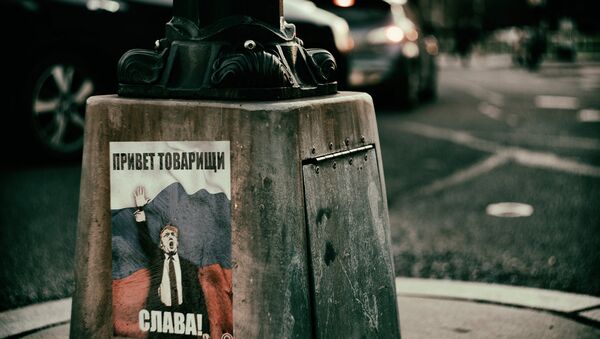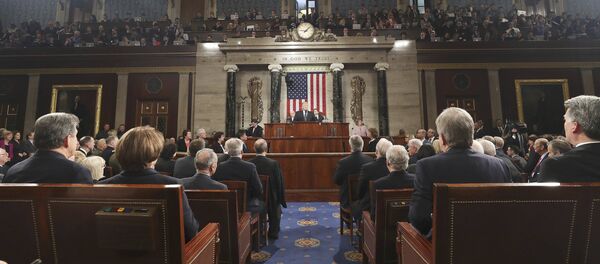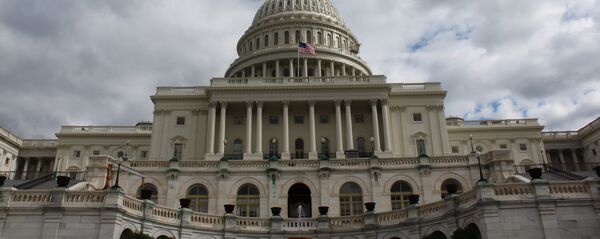The European Commission was quick to respond, saying that it was "ready to act to protect European interests."
"On the basis of a presentation by President Juncker and Vice-President Katainen, the College of Commissioners discussed today the state of play of the US draft bill on Russia sanctions ('Russia, Iran, and North Korea Sanctions Act')," said the statement of the Commission, which it issued on Wednesday.
"Commissioners expressed their concerns notably because of the draft bill's possible impact on EU energy independence. The bill as endorsed by the US House of Representatives demonstrates that a number of these concerns are being taken into account. It nevertheless foresees the imposition of sanctions on any company (including European) which contributes to the development, maintenance, modernization or repair of energy export pipelines by the Russian Federation. Depending on its implementation, this could affect infrastructure transporting energy resources to Europe, for instance the maintenance and upgrade of pipelines in Russia that feed the Ukraine gas transit system. It could also have an impact on projects crucial to the EU's diversification objectives such as the Baltic Liquefied Natural Gas project," it explained.
"The US Bill could have unintended unilateral effects that impact the EU's energy security interests. This is why the Commission concluded today that if our concerns are not taken into account sufficiently, we stand ready to act appropriately within a matter of days. America first cannot mean that Europe's interests come last," it stated.
"The Nord Stream 2 project will be the first to suffer as a result of these sanctions, just like all other joint Russian-European projects, and there are a lot of them. Hence Mr. Juncker’s initiative that the EU should be a territory where these sanctions are not applied is well-understandable," Mukhin told Sputnik.
The political analyst suggested that the new punitive US measures against Russia, Iran and North Korea are de facto aimed against Europeans.
"The sanctions against Russia are not well thought-out because their authors missed out on the possibility of EU indignation and its attempts to get back to the traditional sovereign way of doing business," he said.
"American initiators of this project might have considered it an insignificant hurdle, which is easy to overcome. However, judging by the mood of the EU's business community, they have been wrong," Alexei Mukhin stated.
In a separate comment on the issue, political analyst Dmitri Abzalov, President of the Center of Strategic Communications, addressed what projects could be affected by the new set of measures.
It could affect the Blue Stream natural gas pipeline, a major trans-Black Sea gas pipeline that carries natural gas from Russia into Turkey. The pipeline has been constructed by the Blue Stream Pipeline B.V., a Netherlands-based joint venture between Russian Gazprom and Italian Eni.
Liquefied Natural Gas (LNG) projects are also very important. For example, the planned expansion of Sakhalin-2, Russia's sole LNG plant, which is operated by Gazprom, Royal Dutch Shell, Japan's Mitsui and Mitsubishi. Another target could be the Baltic Liquefied Natural Gas project, which is also operated by Gazprom and Royal Dutch Shell.
"New US sanctions could seriously complicate the lives of Europeans. Their investment share varies from 30 to 70% depending on each particular project. A possible cut off in financing will mean a serious blow to the European business," Dmitri Abzalov writes in his analytical article for Russia's online newspaper Gazeta.ru.
He further explained that the Nord Stream-2 project also suggested the expansion of an energy hub on the territory of Germany. If the project is halted, Germany might drop its idea of becoming an "energy superpower," which it has been cherishing for a long while. And should forget the idea of selling natural gas to Eastern Europe.
If it opts for the American gas, the cost of production in Europe will considerably increase, which will further increase the cost of manufactured products. Germans then are doomed to lose their competitive battle to Americans, Abzalov explained.
"Before, Washington tried to somehow compensate for the losses of Europe. Now there are no more 'economic carrots', only the stick. For example, Barack Obama offered an alternative to Europeans: you drop cooperation with Russia and you get the Transatlantic Trade and Investment Partnership, even though there were many opponents to it in Germany and in France. But at least it was an attempt to compensate for the losses, while now the US simply offers to toughen the sanctions with nothing in return," the political analyst said.
What Other Countries Washington is Pushing Towards Russia
When President Trump signs the bill into law, China will have to respond, as well as Japan, Dmitri Abzalov says. Japan has already agreed to invest in Russia's Kuril Islands, what will it do now? Turkey will have certain difficulties.
"By pouring of its internal problems into its foreign policy, and, what is more important, into the economy, Washington is forcing its partners to define their economic interests. However, it might seriously affect the diplomatic influence of Americans," Abzaliov noted.
"If the bill is signed into law, what will Trump be able to discuss with the heads of other states? He can't lift the sanctions on North Korea, Iran and Russia. He won't be able to discuss Syria in full. Nor the North Korean nuclear program, clashes in South-East Asia, security in Eastern Europe, or even the situation in Venezuela. Who will wish to make any deal with the US President if he can't offer anything in return?" the political analyst wondered.
He further explained that this is how internal American conflicts are ruining the system, which had been built for decades.
"This system suggested that in exchange for political influence, the US partners are granted access to the American market. However, now these countries understand that they will only experience certain economic losses. And when they are forced to choose between their own pocket and someone else's, it is easy to suggest what will they choose," he finally stated.







